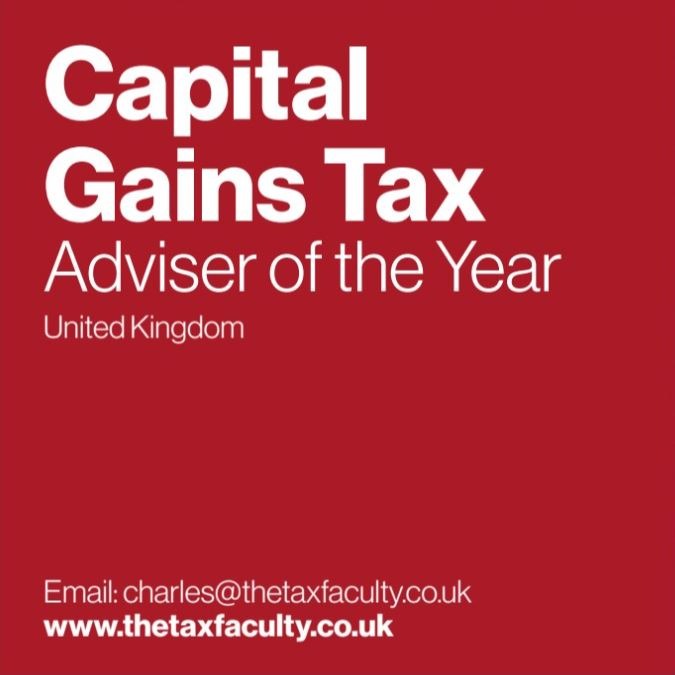Avoiding Unexpected Capital Gains Tax: Surprising Triggers That Could Cost You
With capital gains tax (CGT) allowances slashed and more people getting caught in the tax net, it's crucial to understand what can unexpectedly trigger a CGT bill. From selling high-value items online to gifting assets, learn the lesser-known scenarios that could leave you facing a tax charge. The Tax Faculty are experts in all aspects of CGT, ensuring you're well-prepared and tax-efficient. Read on to protect yourself from surprise liabilities!
HMRCTAX TIPSCGTINVESTMENTSASSETS
The Tax Faculty
3/17/20254 min read


An Introduction to CGT Triggers
Capital gains tax (CGT) has become an increasing burden for taxpayers, especially following drastic reductions in tax-free allowances. In recent years, the threshold for CGT has fallen sharply, exposing more individuals to tax bills they may not have anticipated. While many assume CGT only applies to stocks, shares, and property, the reality is far more complex.
To help you stay ahead of unexpected tax liabilities, we've compiled a list of surprising situations that could trigger a CGT bill — some of which may catch you off guard.
1. Selling High-Value Items Online
Platforms like eBay, Facebook Marketplace, and Etsy have made it easier than ever to sell personal belongings. However, if you sell an item for more than £6,000 and make a gain above the annual CGT allowance, you could be liable for tax.
This applies to valuable possessions such as antiques, artwork, and jewellery.
Think you're avoiding tax by giving away an asset rather than selling it?
Think again. If you transfer an asset to someone other than your spouse or civil partner, it’s treated as if you sold it at market value, potentially triggering CGT if its value has increased since purchase.
2. Gifting Assets to Friends or Family (Excluding Spouses and Civil Partners)


Selling an asset at a discounted price to a friend or relative?
HMRC doesn’t allow this to bypass CGT. Instead, tax is calculated based on the market value, not the price you agreed upon.
3. Selling an Asset for Less Than Market Value
Cryptocurrency isn’t just subject to tax when you sell it — it can also trigger CGT if you use it to buy goods or services.
Each time you exchange crypto, HMRC considers it a disposal, meaning gains since acquisition could be taxed.
4. Using Cryptocurrency for Purchases
Exchanging assets—whether properties, collectibles, or even different types of cryptocurrency — is treated as a taxable event.
If the swapped items have appreciated in value since you acquired them, CGT may apply.
5. Swapping One Asset for Another
Selling or gifting a second property is one of the most well-known CGT triggers, but many are caught out by changes in tax rates and allowance cuts.
Planning ahead and exploring tax relief options like Principal Private Residence Relief (PPR) can help mitigate the impact.
6. Disposing of a Second Home or Investment Property
Investments held outside ISAs and pensions are subject to CGT when sold at a gain.
The recent increase in CGT rates on non-property assets makes tax-efficient planning more essential than ever.
7. Profiting from Investments Outside Tax-Efficient Wrappers
With expert guidance, you can minimise your exposure to capital gains tax. Here are some strategies:
• Utilise Your CGT Allowance: Each individual has an annual CGT-free allowance—use it before it resets each tax year.
• Offset Losses Against Gains: If you have investments that have dropped in value, you can use losses to offset taxable gains.
• Plan as a Couple: Spouses and civil partners can transfer assets tax-free to maximize both allowances.
• Make Use of ISAs and Other Tax-Sheltered Investments: Investments held within ISAs are CGT-free.
How to Reduce Your CGT Bill
As CGT allowances shrink and rates rise, it’s never been more important to understand what could unexpectedly trigger a tax bill. Whether you're selling high-value personal items, gifting assets, or dealing in cryptocurrency, staying informed can help you avoid costly surprises. Make sure you're proactive about tax planning—because a little foresight can lead to significant savings.
Navigating CGT can be complex, but you don’t have to do it alone. The Tax Faculty specialises in all aspects of capital gains tax, from tax-efficient investments to strategic asset disposal planning. Contact us today to ensure you’re not paying more tax than necessary.
Expert Advice and Final Thoughts
Capital Gains Tax Expertise: The Tax Faculty LLP Managing Partner Charles Tateson Named UK Capital Gains Tax Advisor of the Year 2023
The Finance Monthly Taxation Awards recognises the achievements of tax professionals from around the globe.
Winning such an award is no small feat. It is a reflection of hard work, extensive knowledge, and an ability to navigate the intricacies of the UK tax system.
Read more about Charles and the award here.



Contact Us
Contact us today on freephone 0800 0016 878 for a free consultation on all tax issues, or fill out the handy form below and we'll get back to you as soon as possible.
Alternatively, you can email us at info@thetaxfaculty.co.uk or complete the form below.
(Please note, non-UK callers may need to call 0207 101 3845 if your line cannot connect to our 0800 number)
Feel free to contact us through WhatsApp - we accept calls and messages.
Simply click the WhatsApp button below:
The Tax Faculty LLP - info@thetaxfaculty.co.uk
Call us on 0800 0016 878 for a free consultation
Copyright © 2024 The Tax Faculty LLP - All Rights Reserved


